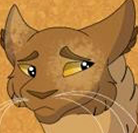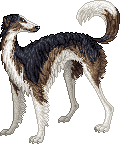Er, hunting is a little more complicated than you realize, I think. It's not just a case of "if it's not endangered, go shoot as many of them as you want". There's still licenses, limits, regulations, and restrictions in place for many species, which can themselves vary from area to area and from year to year depending on current population trends and circumstances.
(Although personally I wish that more people who do hunting would actually eat what they kill and not just mount it on a wall and brag about it to their friends or something...)
Also, bears rarely attack adult deer. They tend to prefer going for smaller animals, fish, and berries. Or scaring wolves away from their kills.
killing wolves
Moderator: Hall of Speakers Moderators
Forum rules
Hall of Speakers rules
Hall of Speakers rules
-
Flameclaw1234

- MagiStream Donor



- Creatures • Trade
- Posts: 2493
- Joined: June 23rd, 2009, 9:07:37 pm
- Gender: Female
Re: killing wolves
That's not what I meant to sound like about hunting. I understand that there are licences and regulations. The concept of "hunting season" is understood, don't worry. But this only proves that if it's legal for wolves to be hunted- this means all of your permits are gotten, the limits haven't been reached, and it won't endanger the animal's population, then it's okay to legally shoot some wolves in the designated area. Because, like any animal, they can cause problems in overpopulation. However, overhunting can cause problems for any species, which I understand. Then again, this thread is only about wolf hunting. While I'd like to just stick to that, the wolf population is fairly connected to other animal's populations as well, and I think they deserve some exploration as well.
Lessee, hunting season is September, October or so? Around the fall. That's what's come up when I searched and got a news article. This means that during this time, there wouldn't be many newborns left to fend for themselves, which is often a big arguing point in the wolf hunting debate. Most animals give birth in the Springtime, after all.
...Yeah, I'm not an expert on bears. But I know there are animals that are not wolves that eat deer, so let's hypothetically go with one of those. (Also not a hunter, so forgive me for anything I've messed up. I would like to hear from a real wolf hunter, but I suppose this wouldn't be the thread to talk about that in.)
Lessee, hunting season is September, October or so? Around the fall. That's what's come up when I searched and got a news article. This means that during this time, there wouldn't be many newborns left to fend for themselves, which is often a big arguing point in the wolf hunting debate. Most animals give birth in the Springtime, after all.
...Yeah, I'm not an expert on bears. But I know there are animals that are not wolves that eat deer, so let's hypothetically go with one of those. (Also not a hunter, so forgive me for anything I've messed up. I would like to hear from a real wolf hunter, but I suppose this wouldn't be the thread to talk about that in.)
I try to click the page above me. Thank you for returning the favor!
-
TNHawke

- MagiStream Donor
- Creatures • Trade
- Posts: 10364
- Joined: June 15th, 2009, 1:35:40 am
- Gender: Female
- Location: A kaleidoscope colored reality of my own design
Re: killing wolves
Tell that to Wyoming, which insists on keeping wolves on the 'varmint' list which basically means, shoot on sight, any time of year, as many as you like. (I bolded a part in an article below to show this.) Even when the wolf was removed from the Endangered species list in 2008, it was quickly re-listed in Wyoming to stop them from being wiped out once more.Keolah wrote:It's not just a case of "if it's not endangered, go shoot as many of them as you want".
To those who say the wolf is not endangered... if it's not... then why has it been on the endangered species list?
I found this on the Defenders of Wildlife site
"Endangered Species Act (ESA): Gray wolves are listed as endangered throughout the United States except for Idaho and Montana and parts of Washington, Oregon and Utah. Wolves in Minnesota are listed as threatened. In Alaska, wolves are not listed under the ESA1
On May 4, 2009 the U.S. Fish and Wildlife Service removed the northern Rockies gray wolf from the endangered list. Although the regional population has rebounded to more than 1,600 wolves, the federal delisting plan allows 2/3 of current wolf population to be killed - down to only 450 wolves regionwide."
Looking for other information, from hopefully less biased organizations, I found information stating that the grey wolf was systematically exterminated in the 48 states in the 1930s.
then I found this timeline from http://www.conservationnw.org/wildlife- ... rotection.
To this, I would like to add a VERY recent addition- from April 15, just a few days agoA brief timeline of the tumultuous history of gray wolf protection as an endangered species in the Northern Rockies.
1974: Gray wolves are listed as endangered under the Endangered Species Act (ESA) in the lower 48.
February 2007: US Fish and Wildlife Service proposes to delist (and remove from ESA protection) the Northern Rocky Mountain wolf population, which includes Wyoming, Idaho, Montana, and parts of northeastern Washington. If delisted, management of wolf populations would fall to the individual states.
July 6, 2007: The agency opens its original public comment period on the proposal to delist gray wolf in the Northern Rocky Mountains.
February 21, 2008: A final rule by US Fish and Wildlife Service delists the Northern Rocky Mountains gray wolf, citing that “the wolf population in the Northern Rockies has far exceeded its recovery goal.â€Â
September 15 - December 31, 2008: The state of Montana proposes a “wolf season†(a fall hunting season, followed by a December trapping season). Wyoming and Idaho propose similar wolf seasons.
April 2008: The Natural Resource Defense Council and eleven other wolf advocacy groups challenge the federal government’s decision to delist the wolf by filing for an injunction against the delisting.
July 18, 2008: US District Judge Donald Malloy grants a preliminary injunction to place gray wolves under federal protection until the final ruling. His reasoning agrees with wolf biologists that genetic exchange among subpopulations of wolves is an unmet requirement and that the state management plans set to take over with delisting are inadequate. For example, people would be allowed to shoot wolves on sight in 88% of the state of Wyoming.
October 13, 2008: US Fish and Wildlife Service repeals the delisting because it is now obvious that they will lose in court. The litigation is rendered moot.
October 28, 2008: US Fish and Wildlife Service re-opens public comment, slated to last 30 days, until November 28. Defenders of Wildlife is successful in increasing the public comment period to 60 days.
November 28, 2008: The latest public comment period closes. A final rule on the delisting of Northern Rocky Mountain wolves is expected by mid-January of 2009.
January 14, 2009: The Bush administration proposes to strip Northern Rockies wolves of their Endangered Species Act protections.
March 6, 2009: Interior Secretary Ken Salazar announces that the US Fish and Wildlife Service follow the lead of the Bush administration and remove wolves in the Northern Rockies and Greater Yellowstone region from endangered species protections. Management now moves to individual states. What it means
September 2009: Idaho starts its wolf hunting season in its central and northern mountains.
September 9, 2009: A federal judge rules that gray wolf hunts in Montana and Idaho may continue, denying a request by conservationists and animal welfare groups to stop the first legal hunts in the lower 48 states in decades. Conservationists may still challenge the decision, on the grounds that the agency violated the Endangered Species Act by making its decision based on political boundaries.
August 2010: A court ruling protects Northern Rockies’ wolves again, returning them to the Endangered Species list. U.S. District Judge Donald Molloy rules that the government was out of line making a political decision to delist wolves in Idaho and Montana.
2009: The state of Montana and others appeal Malloy's ruling.
February 2011: Legislators introduce Congressional bills that would reduce or strip protections from gray wolves.
March 18, 2011: Wildlife advocates and US Dept of Interior reach an agreement to lift protections in Idaho and Montana allowing hunting of wolves to resume there.
March 24, 2011: 10 conservation groups and the US Fish and Wildlife Service ask Judge Malloy to accept a settlement that would life protections from wolves in Idaho and Montana, but maintain protections for wolves in Washington, Oregon, Wyoming and Utah, where populations are more vulnerable.
found on BBC news site http://www.bbc.co.uk/news/world-us-canada-13086459
click the link to read the entire article, but basically Obama signed what was proposed in February 2011.Congress strips grey wolf endangered species protection
Re: killing wolves
I mean Yellowstone has been the main issue over the last years, they've kept the Eco-nomical balence in check, especialy the Elk population, without the Wolves, Bears and perhaps nearlly all of yellowstone numbers will decline dramaticly.
Also, in America Timber/Grey Wolves where un-humanly hunted such as ariel shooting, poision and inhumane traps. Adding onto Koela, without some hunting being done, populations might increase and get overhand, I'm not really suggesting wolves at the moment, more of deer in the Uk, they've got badky out of hand and Scientists believe protecting the population of wolves and increasing them, will probably help solve prey population.
Also, in America Timber/Grey Wolves where un-humanly hunted such as ariel shooting, poision and inhumane traps. Adding onto Koela, without some hunting being done, populations might increase and get overhand, I'm not really suggesting wolves at the moment, more of deer in the Uk, they've got badky out of hand and Scientists believe protecting the population of wolves and increasing them, will probably help solve prey population.
Avatar @ WQ
Avatar © Mute
Avatar © Mute
-
TNHawke

- MagiStream Donor
- Creatures • Trade
- Posts: 10364
- Joined: June 15th, 2009, 1:35:40 am
- Gender: Female
- Location: A kaleidoscope colored reality of my own design
Re: killing wolves
I thought the Wolf Wars article in a recent National Geographic really covered the entire issue well. They discussed environmental, livestock and deer and elk population issues.
Here's a link to the article if you want to read the whole thing, I'm just going to paste in some pertinent snippets.
http://ngm.nationalgeographic.com/2010/ ... ick-text/1
From 1926 to 1995, there were no wolves in Yellowstone. Elk were overbrowsing, eating virtually all new tree saplings. Streamside trees and bushes were decimated, resulting in loss of erosion control, loss of nesting for birds, and loss of habitat for for fish, amphibians and other creatures beause the water was broader, shallower and warmer.
Coyotes were extremely common, taking out pronghorn and many elk calves, but mostly eating small mammals which are also prey for foxes, badgers, snakes and birds of prey. Many birds of prey are also endangered.
In the 15 years since wolves were reintroduced, yes, the elk population was halved. However, this was also (possibly even primarily) due to severe winters and droughts. Fear of wolves keeps elk moving, which makes them harder for both wolves and humans to hunt. (Baww, poor humans)
New aspen groves have risen and are now 10 to 15 feet tall. Wolves have actually predated on coyotes, and their numbers have dropped. The number of pronghorn has increased. Cougars have moved back into the higher elevations they normally inhabit. Fewer elk means more grass for the bison (elk are not endangered, bison are)
Streamsides are stabalizing. Beaver colonies now number 12 from just one before. Their dams create ponds which are habitat for many different creatures.
Unfinished prey left by wolves leaves carrion for scavengers such as eagles and bears.
This would be why grey wolves are considered endangered
It's the same way with wolves and deer and elk. When they were reintroduced, there were so many Elk in Yellowstone, they were being culled by the thousands, only to quickly repopulate again. When the wolves came...
Here's a link to the article if you want to read the whole thing, I'm just going to paste in some pertinent snippets.
http://ngm.nationalgeographic.com/2010/ ... ick-text/1
From 1926 to 1995, there were no wolves in Yellowstone. Elk were overbrowsing, eating virtually all new tree saplings. Streamside trees and bushes were decimated, resulting in loss of erosion control, loss of nesting for birds, and loss of habitat for for fish, amphibians and other creatures beause the water was broader, shallower and warmer.
Coyotes were extremely common, taking out pronghorn and many elk calves, but mostly eating small mammals which are also prey for foxes, badgers, snakes and birds of prey. Many birds of prey are also endangered.
In the 15 years since wolves were reintroduced, yes, the elk population was halved. However, this was also (possibly even primarily) due to severe winters and droughts. Fear of wolves keeps elk moving, which makes them harder for both wolves and humans to hunt. (Baww, poor humans)
New aspen groves have risen and are now 10 to 15 feet tall. Wolves have actually predated on coyotes, and their numbers have dropped. The number of pronghorn has increased. Cougars have moved back into the higher elevations they normally inhabit. Fewer elk means more grass for the bison (elk are not endangered, bison are)
Streamsides are stabalizing. Beaver colonies now number 12 from just one before. Their dams create ponds which are habitat for many different creatures.
Unfinished prey left by wolves leaves carrion for scavengers such as eagles and bears.
This would be why grey wolves are considered endangered
16% of wolves were killed because of less than 1% of cattle deaths...Relentlessly shot, trapped, and poisoned, even in nature reserves, gray wolves were gone from the West by the 1930s. In 1974, when Canis lupus was declared endangered in the lower 48 states, the gray wolf population was confined to a corner of northern Minnesota and Michigan's Isle Royale National Park out in Lake Superior.
During 2008, wildlife agents confirmed 569 cattle and sheep deaths from wolves throughout the West. That amounted to less than one percent of livestock deaths in the region, but the damage is never distributed equally. The same year 264 wolves were killed for attacking livestock in Montana, Idaho, and Wyoming. That's a big number, but it was taken from a wolf population now grown to around 1,600, roaming the region in more than 200 packs.
There is a definite impact on cattle ranchingIn May 2009, the wildlife service declared the species recovered in the northern Rocky Mountains and handed over responsibility for them to Montana and Idaho. Both instantly labeled them game animals and set quotas for the first legal wolf hunts in either state's memoryâ€â€75 in Montana, 220 in Idaho. "It's amazingâ€â€from a single, endangered pack to a huntable surplus across a whole region," says Jim Williams, the Montana Department of Fish, Wildlife & Parks wildlife program manager for northwest Montana. "This is the most striking Endangered Species Act success story I can think of." Maybe. In November 2009, Idaho extended its season to last until the quota is met, or until March 31, whichever is sooner. The change could open the door to hunters traveling by snowmobile and to the killing of pregnant females.
After an earlier federal decision to deÂÂlist Western wolves in 2008, Wyoming essentially defined the animals as varmints, or pests, allowÂÂing virtually unlimited shooting and trapping year-round. A resulting lawsuit forced the wildlife service to temporarily put wolves back on the endangered list. (Since then, the service has refused to take them off in Wyoming until that state comes up with a different plan.)
Killing wolves isn't the ONLY solution"We'd usually be missing three to five calves at roundup," John says. "Now it's closer to 25. This spring our calving grounds down near the house got hit. Seven calves were confirmed wolf kills, so we were reimbursed for them."
The trouble is if ranchers don't come across a carcass right away, scavengers may drag off or shred all the evidence. Many say in some areas the actual kills by wolves may average as high as seven for every one that can be proved, but no confirmation, no compensation. And dead and missing animals are only part of the toll. Cattle harassed by wolves over one season can lose 30 to 50 pounds each. On top of that, hormonal effects from stress kick in. "We had 85 pregnant heifers this spring, and 60 aborted," John says.
"The worst part," Rae says, "is that 23 of the cows that aborted were in our son's starter herd of 25. He's stuck with a $7,500 bank note and two calves to pay it off with.
...after brushes with wolves, mother cows stay ornery and extra protective of calves. The Hermans aren't the only ranchers to say it is harder to wrangle such cattle in pens
Coexistence is keyPeter Brown... travels by pickup truck, motorcycle, or foot. He monitors the whereabouts of wolf packs in relation to cattle and reports daily to ranchers so they can move herds to safer grazing spots or keep a closer eye on them. Electric fencing now surrounds calving lots in many risky areas. To visually warn wolves away from other pastures, Brown sometimes turns to the old European technique called fladry, stringing wire with bright flags along its length.
...we have good populations of natural prey here. I've seen wolves walk right through cattle herds to stalk deer."
Ranchers used to leave stock that died of disease, birthing problems, and accidents lying on the range or collected in heaps called bone piles...."Now we collect carcasses right away and compost them at a distant site. It's one of the simplest and most effective ways to reduce conflicts with both bears and wolves. It just requires changing old habits."
There is a natural ebb and flow to predator/ prey populations- I learned that from a Ranger Rick magazine when I was 4th grade. You have a lot of bunnies? The hawk population increases because there's more food for their chicks. The hawks kill off a lot of bunnies and the rabbit population declines, and so follows the hawk population because there's not enough food. With fewer hawks, the rabbits start to repopulate."We have to realize that the general U.S. population wants wolves. That population is also our customers for beef.
It's the same way with wolves and deer and elk. When they were reintroduced, there were so many Elk in Yellowstone, they were being culled by the thousands, only to quickly repopulate again. When the wolves came...
So what about game species? Aren't the wolves decimating elk? In addition to what was said above about other environmental factors"Numbers never got as high as we expected based on the availability of prey. This suggests that once wolves reach a certain density, you start to get social regulation of their numbers."
Distemper, parvo and mange are taking tolls on wolf populations as well.
The wolves' diet here is mostly white-tailed deer. Northwestern Montana has at least twice as many cougars as wolves and twice as many grizzly bears. Together they kill more adult deer and fawns than wolves do. Coyotes and black bears take a share as well. On top of that, the area has had two tough winters in a row. Deer totals dropped even where few predators prowl. Yet overall deer numbers remain within the historical average. For that matter, both elk and deer are doing well across the West. ...There are bigger drivers than wolves in these systems." ... He also sees game losing critical winter range to subdivisions up and down the valley
-
Flameclaw1234

- MagiStream Donor



- Creatures • Trade
- Posts: 2493
- Joined: June 23rd, 2009, 9:07:37 pm
- Gender: Female
Re: killing wolves
Just to put this out there: I'm not saying we shouldn't have wolves. Not at all, in fact. I think that we, as humans, should be able to and can keep the wolf population at a regular level. I just don't believe that we should ban the hunting of wolves altogether. Because not only is the population of wolves controlled by the food supply, it's also controlled by hunting. It's a great idea to have wolves in Yellowstone, to keep the deer and elk populations regulated. I can fully agree with the introduction of wolves there. But if they're endangering human lives and livestock lives outside of national parks, then shouldn't we have the right to defend ourselves and our income? Again, I'm not saying obliterate all wolves. I'm just saying that if we are put in danger by an animal, from wolves to sharks, shouldn't we be able to defend ourselves?
Yes, there are other ways of protecting ourselves, but sometimes there is a lack of resources for these other options. There may be not enough money to put electric fencing around a huge ranch and constantly go hunting for dead cattle to move them. That's burning fossil fuel, which is not only becoming more expensive, but less plentiful, and can pollute the air permanently.
But while I'm at it, anyone care to speak about a species other than the gray wolf, the Red Wolf? These wolves were also hunted, nearly to extinction. But the majority of what we hear about today is Gray Wolves, who yes, are endangered, but are not of greatest concern currently.
Yes, there are other ways of protecting ourselves, but sometimes there is a lack of resources for these other options. There may be not enough money to put electric fencing around a huge ranch and constantly go hunting for dead cattle to move them. That's burning fossil fuel, which is not only becoming more expensive, but less plentiful, and can pollute the air permanently.
But while I'm at it, anyone care to speak about a species other than the gray wolf, the Red Wolf? These wolves were also hunted, nearly to extinction. But the majority of what we hear about today is Gray Wolves, who yes, are endangered, but are not of greatest concern currently.
Why are the wolves more important? Why should we value the lives of wolves over our food sources? If every life is precious, why are some valued over others?Freerunner wrote:I definitely think that wolves should be protected! They are my absolute favorite animal and I would not be able to stand see any of their species killed off. They should be protected no matter where the problem is as their populations are going to be going down with all the contact with humans. I can understand the farmers frustrations but the wolves are more important in my opinion.
Before we do give up on that discussion though, I was just wondering something. Why should we shoot human livestock thieves, but not wolves? We can teach a human to repent, and listen to what caused them to do so. At this point in time, however, we cannot help a wolf change to the extent that we could to someone who speaks our own language. Of course, we can't just go out there like maniacs and shoot anything that moves. But why would you choose the wolf over the human? (Not wanting this to seem judgmental, I just want to know what your motives would be for this.)flamekaat wrote:Wolves are an interesting species. I also want to agree with one of the first posters though that hunters being bad or good should not be disputed here. Farmers can find better ways to protect their livestock then with a gun. That should be saved for human livestock thieves. Several westerns states still allow you to fatally shoot horse/cattle thieves depending on states I think. Its been a long time since I had that discussion with my cattle raising neighbors and that is not this discussion topic anyways.
I try to click the page above me. Thank you for returning the favor!
-
TNHawke

- MagiStream Donor
- Creatures • Trade
- Posts: 10364
- Joined: June 15th, 2009, 1:35:40 am
- Gender: Female
- Location: A kaleidoscope colored reality of my own design
Re: killing wolves
Please back this up with citations. I can think of only a single wolf attack on humans, and the final determination was that the wolf had been acclimatised by humans feeding it. All the "I'm afraid to let my kids play outside" that I have seen seems to be based on media hype, cattleman bias, human ignorance and ungrounded fears.Flameclaw1234 wrote:But if they're endangering human lives
So, when there's a shark attack, we should shoot the sharks too? Recent studies have shown that sharks travel a LOT more than used to be thought. http://www.sharkresearch.com/tiger_shar ... _index.htmI'm just saying that if we are put in danger by an animal, from wolves to sharks, shouldn't we be able to defend ourselves?
I believe it was a SharkWeek program about shark attacks in Hawaii, how years ago, if there was a shark attack, there was a huge muster to kill as many sharks as possible. Actual research showed the the individual shark involved was probably long gone from the area by that point because of the way they travel.
Why not horseback? Seems to me that not all of the 'new' ways are better.That's burning fossil fuel, which is not only becoming more expensive, but less plentiful, and can pollute the air permanently.
Part of what I cited in an above post is regarding the successful use of such patrols. They also found that it seemed the wolves were less likely TO attack cattle just because of the patrol.
Red wolves are on the endangered species list and are not actively being (legally) hunted, unlike Grey Wolves in Idaho, Montana and Wyoming.But while I'm at it, anyone care to speak about a species other than the gray wolf, the Red Wolf? These wolves were also hunted, nearly to extinction. But the majority of what we hear about today is Gray Wolves, who yes, are endangered, but are not of greatest concern currently.
What I want to know is why, if wolves actually account for less than 1% of cattle loss... why are THEY singled out as the bad guy compared to the other 99%+ of causes?
Opinion below-
If the cows get smarter out on the range because they fear predators, I think the ranchers need to find smarter ways of caring for them. Bad enough we've bred all the brains out of our food, but the humans can't be smarter than the cows they herd?
-
Flameclaw1234

- MagiStream Donor



- Creatures • Trade
- Posts: 2493
- Joined: June 23rd, 2009, 9:07:37 pm
- Gender: Female
Re: killing wolves
http://www.aws.vcn.com/wolf_attacks_on_humans.html and http://www.wildsentry.org/WolfAttack.html both have reported wolf attacks.TNHawke wrote:Please back this up with citations. I can think of only a single wolf attack on humans, and the final determination was that the wolf had been acclimatised by humans feeding it. All the "I'm afraid to let my kids play outside" that I have seen seems to be based on media hype, cattleman bias, human ignorance and ungrounded fears.
But a wolf pack is more likely to stay in the same area, around their home. I don't mean obliterate all sharks, I just mean that a shark that enters an area that is inhabited by humans, like a beach, should be removed from the area. The area should be roped off, but I'm sure a shark could get through roping. Measures should be taken to keep the area safe, and while that doesn't necessarily mean killing off all sharks, it may mean relocating them after the attack happens. But if a shark is in the middle of attacking a human, should we let it? Did the human deserve to be attacked?So, when there's a shark attack, we should shoot the sharks too? Recent studies have shown that sharks travel a LOT more than used to be thought. http://www.sharkresearch.com/tiger_shar ... _index.htm
I believe it was a SharkWeek program about shark attacks in Hawaii, how years ago, if there was a shark attack, there was a huge muster to kill as many sharks as possible. Actual research showed the the individual shark involved was probably long gone from the area by that point because of the way they travel.
If there are wolves out there, wouldn't the wolves merely attack the horses? Sure, wolves may shy away from humans. But not horses, not something that they could take down. And if there is an attack, which are you safer on? A tractor or a horse?Why not horseback? Seems to me that not all of the 'new' ways are better.
Part of what I cited in an above post is regarding the successful use of such patrols. They also found that it seemed the wolves were less likely TO attack cattle just because of the patrol.
There are, unfortunately, many animals that are in even worse condition than the Gray Wolf, but are still being hunted. Like TxCat said earlier, manatees are suffering, but are not actively being conserved. They are ewer in numbers than wolves are, yet we tend to focus our thoughts on wolf hunting for some reason. Yes, wolves are one of my favorite animals. No, I don't think that pushes them above other endangered animals. Why is this, because they are well-known and "majestic, pretty, etc.?"
Coelacanths have populations near the low hundreds (http://www.dinofish.com/pop.htm) that were recently estimated back up to about 1,000. However, this is still an extremely low amount. But the coelacanth isn't considered pretty, is it? In fact, the knowledge of this fish is so low that my computer's spell check doesn't recognize it as a word. How drastic is that? Yet we are worried about Grey Wolves.
I try to click the page above me. Thank you for returning the favor!
-
TNHawke

- MagiStream Donor
- Creatures • Trade
- Posts: 10364
- Joined: June 15th, 2009, 1:35:40 am
- Gender: Female
- Location: A kaleidoscope colored reality of my own design
Re: killing wolves
I found this PDF via the second link. It's actually a scientific journal type article where research was done, not just to find and report wolf attacks, but also to quantify the type of attack and possible causes. It's much more fully informative than the simple list of attacks in the first link above, and more objective than the second. It's a bit of a long read, but I highly recommend it. http://www.wildsentry.org/Images/Wolf-H ... Alaska.pdf
The first site seems to be very "just the fax ma'am", with a slight bias against wolves. The second one was clearly pro-wolf, but also cited much of the same information.
Funny though... I lived about 30 miles from Caldwell, ID in Boise in 1989, and I don't recall that story at all.
I REALLY like this excerpt from the second link
Coelacanths were also thought to be extinct with the dinosaurs. And listing them as being 'special' because the spell check doesn't know the word? It doesn't know the word "Hatchling" either. Have you ever tried to write a biology report? Word doesn't know 90% of the terms there either. So, that's really not your best choice of supporting argument.
The first site seems to be very "just the fax ma'am", with a slight bias against wolves. The second one was clearly pro-wolf, but also cited much of the same information.
This is the incident that I remembered.Algonquin Provincial Park is one of several areas where people are encouraged to "howl" at the wolves in hopes of a response from the wild wolves in the area. In August, 1996, the Delventhal family of Pittsburgh, Pennsylvania, were spending a nine-day family vacation in Algonquin and joined a group of Scouts in "howling" at the wolves. They were answered by the howl of a solitary wolf.
That night the Delventhals decided to sleep out under the stars. Young Zachariah was dreaming when he suddenly felt excruciating pain in his face. A lone wolf had bit him in the face and was dragging him from his sleeping bag. Zach screamed and Tracy, Zach's Mother, raced to his side and picked him up, saturating her thermal shirt with blood from Zach's wounds.
The wolf stood menacingly less than a yard away. Tracy yelled at her husband, Thom, who leapt from his sleeping bag and charged the wolf. The wolf retreated and then charged at Tracy and Zach. The charges were repeated. Finally the wolf left. Thom turned a flashlight on 11-year-old Zach and gasped "Oh, my God!" "The boy's face had been ripped open. His nose was crushed. Parts of his mouth and right cheek were torn and dangling. Blood gushed from puncture wounds below his eyes, and the lower part of his right ear was missing." Zach was taken to a hospital in Toronto where a plastic surgeon performed four hours of reconstructive surgery. Zach received more than 80 stitches in his face.
Canadian officials baited the Delventhals' campsite and captured and destroyed a 60-lb wild male wolf. No further attacks have occurred since. (Cook, Kathy; "Night of the Wolf" READER'S DIGEST, July 1997, pp. 114-119.)
Funny though... I lived about 30 miles from Caldwell, ID in Boise in 1989, and I don't recall that story at all.
I REALLY like this excerpt from the second link
I also enjoyed this from one of the side barsSome people believe that aggressive wolves result because humans no longer pose the threat we used to-their reasoning goes something like this, Wolf Attack from page 3: "If we killed wolves, they'd learn to be scared of us." Such reasoning, while not entirely errant, isn't necessarily correct either... Aggressive wolves may have begun as bold wolves but not all bold wolves are aggressive (bold and aggressive are not synonymous). Besides, poisoning, trapping, and the indiscriminate killing of wolves doesn't exactly target the problem. True, there wouldn't be any more aggressive wolves because there wouldn't be anymore wolves and therefore the problem would cease to exist, but it'd be kind of like cutting off your head to clear up acne.
Back to the shark thing- If they can't kill the shark that made the attack, how are they supposed to trap and relocate the specific individual? How are they going to keep that shark from returning again?Putting Risk Into Perspective
- Forest Service email reported 1992 figures on the wildlife hazards afield. Topping the list of animal-caused human deaths were deer, racking up 131 for the year. Except in movies, sharks took only one human, bees 43, and rattlesnakes ten.
- You are more likely to be killed by a coconut falling on your head than by a shark (therefore we absolutely oppose the introduction of coconut trees to Montana!)
- From 1989-94 there were 109 fatal dog attacks in the U.S.
- Children crushed to death by televisions since 1990: 2
- An average of 100 people per year choke to death on ballpoint pens.
In the next year:
- You have a 1 in 2 million chance of dying from falling out of bed.
- You have a 1 in 2 million chance of being killed by an animal.
Lifetime risks:
1 in 3 chance that you'll die of heart disease.
1 in 5 chance that you'll die of cancer.
1 in 45 chance that you'll die in an auto accident.
1 in 72 chance that you'll deliberately kill yourself.
1 in 700,000 chance that you'll be killed by a dog.
So if society deems wolves expendable due to the threat they pose to human safety, it only stands to reason that ballpoint pens, televisions, cars, and dogs should be eliminated also.
I think it all depends on the situation. In reading over the wolf attack reports- only two were on horseback, all the rest were on on foot.If there are wolves out there, wouldn't the wolves merely attack the horses? Sure, wolves may shy away from humans. But not horses, not something that they could take down. And if there is an attack, which are you safer on? A tractor or a horse?
Coelacanths were also thought to be extinct with the dinosaurs. And listing them as being 'special' because the spell check doesn't know the word? It doesn't know the word "Hatchling" either. Have you ever tried to write a biology report? Word doesn't know 90% of the terms there either. So, that's really not your best choice of supporting argument.
-
flamekaat

- MagiStream Donor

- Creatures • Trade
- Posts: 288
- Joined: March 14th, 2010, 3:00:32 am
- Gender: Female
- Location: Nevada Utah Border
Re: killing wolves
While I am not willing to go extreme and say that there should be as many wolves as people in the USA we do need to back off them. They should be able to return to their pre near extinction levels, which before we started hunting them and driving them from their turf were supposedly genetically viable. I do not believe any species without proper viability should be hunted at all de-listed or not. As for the above arguments about being attacked on a horse. I LOL at that. Ranchers have rifles other fire arms and weapons are also available too, and while I don't approve of trapping poisoning or seeking out the animal in question to kill it, I do wholly support any person's right to shoot something intending to tear out his or her mount's or own self's throat. Self defense is fine with me. Being what is called PROACTIVE well I find that offensive. Lack of food or sufficient supply is all that is needed to properly control an animal in all but really rare cases. there are hundreds of thousands of Elk and deer and rabbits and I don't hear one thing about letting them be hunted all year long or even increasing the number of tags issued during normal seasons. Truthfully they too are threats to cattle they eat the cattle's food after all. Really for the most part mother nature policies herself quite fine and if it looks otherwise its probably because our own selves have broken the system someplace and we should take into consideration that we should repair what we damaged and see if that corrects the problem first. The above has been entirely my opinion and you are surely allowed to disregard it and even shred it since I am not capable of truthfully supporting my opinions at this time with REAL * makes finger quotes * science. I'd rather have something to eat and go back to egg catching.  fare thee well till later MS neighbors!
fare thee well till later MS neighbors!
















